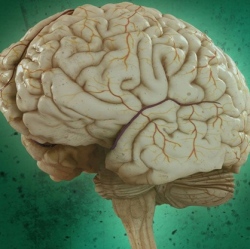
Medicine might help us heal ourselves, by giving us ways to control how our cells grow. Using a mix of small molecules, two groups of scientists in China have successfully turned human skin cells into neurons. They hope that their technique could help rejuvenate failing tissues in the brains of Alzheimer’s patients.
The two teams in China focused on strategies for converting skin cells to neurons, with one group focusing on skin cells from mice and the other on humans. Results of their work are published in two papers today from the journal Cell Stem Cell. The team working on human cells drew their samples from Alzheimers patients, because one possible end goal of this research would be to produce working brain cells that could supplement failing tissues in the brains of people with dementia.
If someone became ill with Alzheimers, doctors might one day use this technique to take a small skin sample and generate new, healthy brain tissue for them. Because the tissues had been made from the patient’s own body, there would be no risk of rejection. The technique worked in both mice and humans, though we are very far from converting this breakthrough into a working therapy for Alzheimers. Still, the results are promising, especially because they don’t require expensive and difficult genetic engineering techniques.
